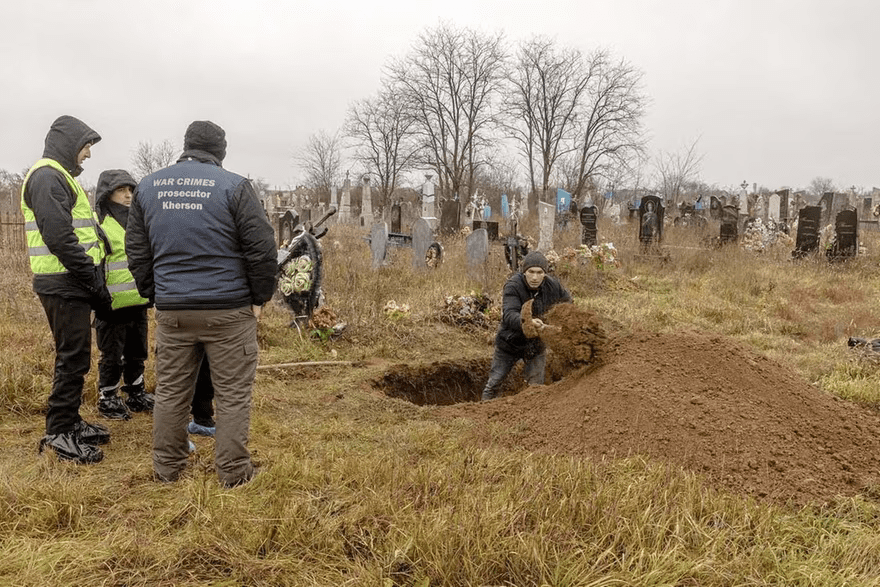Atrocities are being committed in Ukraine that would require the establishment of a war crimes tribunal. But justice requires patience. Read our newsletter on the war in Ukraine here.
Ben Ferencz never thought he would see war in Europe again. The 102-year-old American jurist is the last prosecutor of the Nuremberg trials still alive, who gathered evidence of Nazi war crimes after the end of the conflict. Ferencz explains to us how he sees the war in Ukraine.
“It’s hard to say who the criminal is,” Ferencz replied, “but invading another country is certainly a war crime.” Should Vladimir Putin be put on trial? “Anyone who starts an illegal war, for megalomania or any other reason, deserves to be treated as a criminal.”
The brutality of the war against Ukraine is hard to bear. Can such crimes go unpunished? Can the perpetrators ever be punished? And can there be peace without justice? Journalist Elena Servettaz of swissinfo.ch asked international personalities.
Former international prosecutor Carla Del Ponte worked for the International Criminal Tribunal for the former Yugoslavia (ICTY) and for Rwanda. She confirms what Ferencz says. “His greatest crime is invasion. He is a war criminal, yes, for sure,” she says. But the Swiss jurist sees great challenges in bringing the Russian president to justice. After all, a special UN tribunal would hardly be feasible in view of Russia’s veto power in the UN Security Council.
Beth Van Schaack points to another challenge. She is the US Ambassador for International Justice and says: “Those responsible for this campaign of atrocities are in Russia. They can only be caught when they leave the country.”
Something that will take a long time. And this is the perception of experts: justice requires patience to be executed. For the basis of every prosecution is evidence. As lawyer Philippe Currat says: “Crimes against humanity, war crimes and genocide are extremely complex offenses. They are the result of a large number of acts committed by many people.”
Switzerland has been collecting witnesses from Ukrainian refugees since June 2022 in order to be prepared for any criminal proceedings or request for assistance. The Swiss Attorney General’s Office has also set up a working group related to Ukraine and Russia, focusing on international criminal law.
“Of course the time of law will come, but when and before which court?” wonders François Zimeray. This lawyer at the International Criminal Court in The Hague has already dealt with several war crimes. At the moment he also sees little chance of punishing Russia in an international trial. Ukraine, on the other hand, is legitimized and predestined to take on this task.
Irwin Cotler, Nelson Mandela’s former lawyer, then a federal prosecutor in Canada, is currently working with a UN network to set up a tribunal to try the crimes committed in Ukraine. He hopes that Switzerland will play a role in this. “The international community did not intervene when Russia invaded Chechnya and Georgia. It also took no position with the annexation of Crimea and the bombings in Syria,” charges Cotler, considering that this passivity may have encouraged Putin to invade Ukraine.
Cotler is the only one of the experts interviewed who sees Russian aggression as a possible humanitarian crime, among others, because of the direct and public call for genocide.”
But what is genocide anyway? And what is a crime of aggression under international law? Its classification is difficult due to the complexity of the issue. Our journalist explains the differences.
*** Translated by the DEFCONPress FYI Team ***
